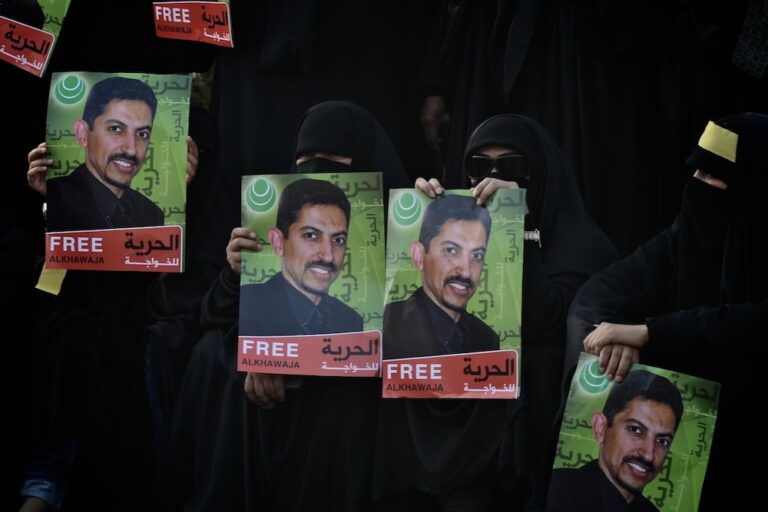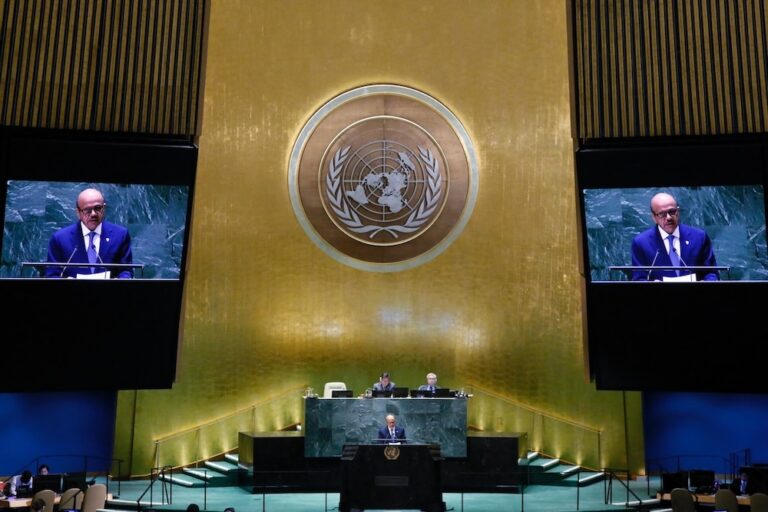(BCHR/IFEX) – BCHR expresses its worry concerning the recent arrest of Abdullah Hassan Bu-Hassan, member of the Democratic National Action Society (WA’AD), after he expressed opinions concerning political decisions in the Kingdom of Bahrain, and also gave his opinion on a report issued by an ex-governmental consultant that revealed a reported government conspiracy to implement […]
(BCHR/IFEX) – BCHR expresses its worry concerning the recent arrest of Abdullah Hassan Bu-Hassan, member of the Democratic National Action Society (WA’AD), after he expressed opinions concerning political decisions in the Kingdom of Bahrain, and also gave his opinion on a report issued by an ex-governmental consultant that revealed a reported government conspiracy to implement discriminatory policies. Bu-Hassan expressed his opinions in an article in “The Democrat”, an official periodic publication of WA’AD. He had also recently displayed a political banner in his car.
Bu-Hassan was released on 21 June 2008, after three days in detention. Hafez Hafez, Bu-Hassan’s lawyer, stated that “the prosecutor’s office released Bu-Hassan on bail (. . .) after he was interrogated by the head of the prosecutor’s office of the Moharaq governorate, Nayef Youssef, concerning the material published in ‘The Democrat’.”
Hafez clarified that the prosecutor’s office charged Bu-Hassan with inciting hatred and insulting the ruling regime, both of which are offences under Article 165 of the Bahraini Penal Code.
BCHR notes that freedom of expression is one of the main pillars of any democratic system, with a government that respects human rights, and is guaranteed in conformity with international covenants that have been ratified by Bahrain, and with Article 23 of the Constitution of the Kingdom of Bahrain, which stipulates that freedom of opinion and expression and scientific research is guaranteed, and that everyone has the right to express themselves by speaking or writing or other means. It is not possible for freedom of expression to breathe and live without the authorities accepting criticism, even if at times that criticism is harsh.
BCHR vice-president Nabil Rajab commented: “We are frustrated that after we read in the press that the Cabinet is moving towards abolishing prison sentences for journalists, this incident proves that the legal system in Bahrain, and particularly the Penal Code, still contains provisions stipulating punishment through imprisonment for writing, publishing and distribution, even though the government said it had abolished the prison sentences in the press and publication law.”
Rajab added that “the Penal Code of 1976 has been and remains a target of criticism by national and international organizations concerned with human rights, as the law makes criminals of people for exercising their civil and political rights, such as freedom of opinion and expression.”
Rajab also added, “These consequences are incompatible with the country’s reform promises and pledges made by the government of Bahrain at the Human Rights Council of the United Nations while discussing its report within the comprehensive review of human rights, as well as during its candidacy for membership of the Human Rights Council.”
BCHR urges the authorities in Bahrain to reform the Penal Code and other laws restricting rights and fundamental freedoms. The legislative framework in Bahrain should be encouraging democratic reform and the development of an open atmosphere promoting and respecting press freedom and free expression. BCHR renews its demands for the Bahraini authorities to be transparent with regard to the circulation of the report published by Dr. Bandar and to investigate documents and details identified in it that impair rights and freedoms.


